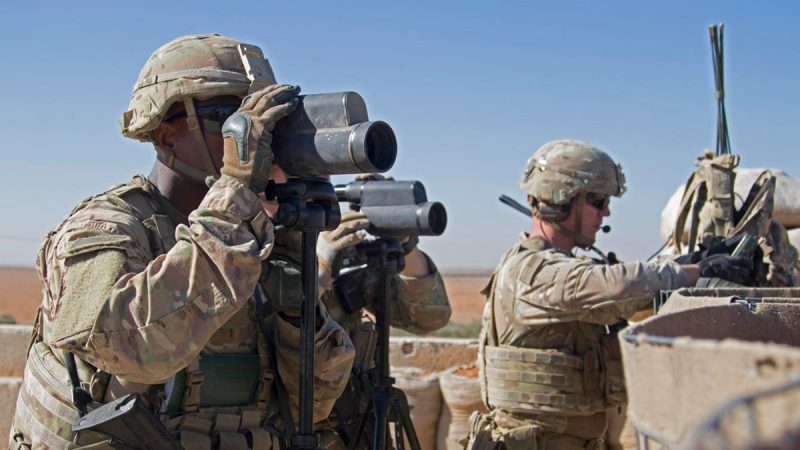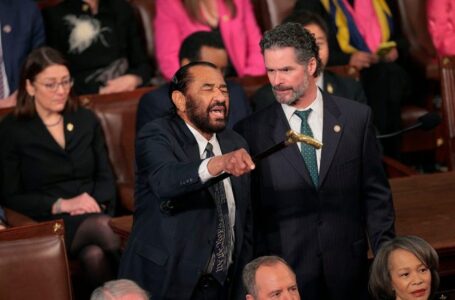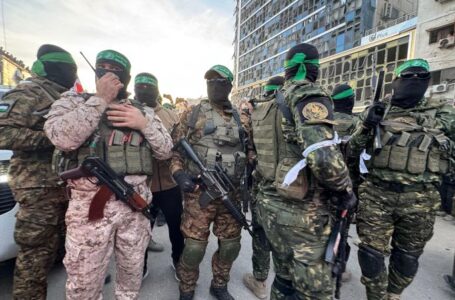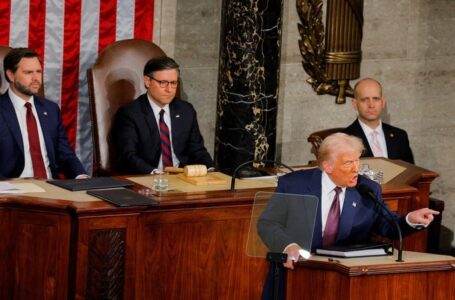SCOOP: Dems who derailed Al Green censure could be stripped of House committee roles
Trump’s pledge against ‘forever wars’ could be tested with Syria in hands of jihadist factions


President-elect Donald Trump is gearing up for his second White House term just weeks after the abrupt toppling of Bashar al-Assad’s regime in Syria— a pivotal moment that could test Trump’s long-held promises to end U.S. involvement in so-called ‘forever wars’ in the Middle East or putting more American boots on the ground in these countries.
With roughly six weeks to go before he takes office, Trump does not appear to be backing down on his promises of pursuing a foreign policy agenda directed toward prioritizing issues at home and avoiding entanglements overseas.
However, Trump’s promises about ending U.S. military commitments abroad could be tested in Syria, where conditions in the country are now vastly different from Trump’s first term — creating a government seen as ripe for exploitation by other foreign powers, including governments or terrorist groups.
‘This is not our fight. Let it play out. Do not get involved,’ Trump said on Truth Social over the weekend, as rebel-backed fighters advanced into Damascus, forcing Assad to flee to Moscow for safe haven.
Trump, for his part, has acknowledged the foreign policy situation he stands to inherit in 2025 could be more complex than he saw in his first term, especially in the Middle East.
It ‘certainly seems like the world is going a little crazy right now,’ Trump told leaders earlier this week in Paris, where he attended a grand reopening of the Notre Dame Cathedral.
Here is a rundown of what Trump did in Syria in 2019 and how his actions could be insufficient today.
Current status
In Syria, the speed at which rebel forces successfully wrested back control of major cities and forced Assad to flee to Moscow for safe haven took many by surprise, including analysts and diplomats with years of experience in the region.
It is currently an ‘open question’ who is currently in charge in Syria, White House National Security communications advisor John Kirby told reporters earlier this week.
However, the rebel-led group that ousted Assad is currently designated as a terrorist organization in the U.S., raising fresh uncertainty over whether Trump might see their rise to power as a threat to U.S. national security and whether he might move to position U.S. troops in response.
The conditions are also ripe for exploration by other governments and adversaries, which could seize on the many power vacuums created by the collapse of Assad’s regime.
In the days following Assad’s flight to Moscow, senior Biden administration officials stressed that the U.S. will act only in a supporting capacity, telling reporters, ‘We are not coming up with a blueprint from Washington for the future of Syria.’
‘This is written by Syrians. The fall of Assad was delivered by Syrians,’ the administration official said.
Still, this person added, ‘I think it’s very clear that the United States can provide a helping hand, and we are very much prepared to do so.’ It’s unclear whether Trump will see the situation the same.
Trump’s first term
In October 2019, Trump announced the decision to withdraw U.S. troops from northeastern Syria, news that came under sharp criticism by some diplomats and foreign policy analysts, who cited fears that the decision risked destabilizing one of the only remaining stable parts of Syria and injecting further volatility and uncertainty into the war-torn nation.
However, at the time, that part of the country was stable. U.S. troops were stationed there alongside British and French troops, who worked alongside the Syrian Defense Force to protect against a resurgence of Islamic State activity. However, the situation is different now, something that Trump’s team does not appear to be disputing, for its part.
Additionally, while seeking the presidency in 2024, Trump continued his ‘America first’ posture that many believe helped him win the election in 2016 — vowing to crack down on border security, job creation, and U.S. oil and gas production, among other things — incoming Trump administration officials have stressed the degree to which they’ve worked alongside the Biden administration to ensure a smooth handover when it comes to geopolitical issues.
Unlike his first White House transition, Trump’s preparations for a second presidential term have been remarkably detailed, efficient and policy oriented. That includes announcing nominations for most Cabinet positions and diplomats, and releasing policy blueprints for how the administration plans to govern over the next four years.
‘For our adversaries out there that think this is a time of opportunity that they can play one administration off the other, they’re wrong, and we… we are hand in glove,’ Trump’s pick for national security adviser, Rep. Mike Waltz, R-Fla., told Fox News in an interview following Trump’s election in November. ‘We are one team with the United States in this transition.’











